It doesn’t matter if your kids are walking to school, riding the bus, or just logging on at the kitchen table this year. Kids of all ages need to be reminded about home safety, especially if they will be spending time home alone.
These are the 10 questions you should answer to give your kids confidence and boost their safety IQ before they stay home alone.
Different kids need different rules at different ages, but these questions will help you cover your bases.
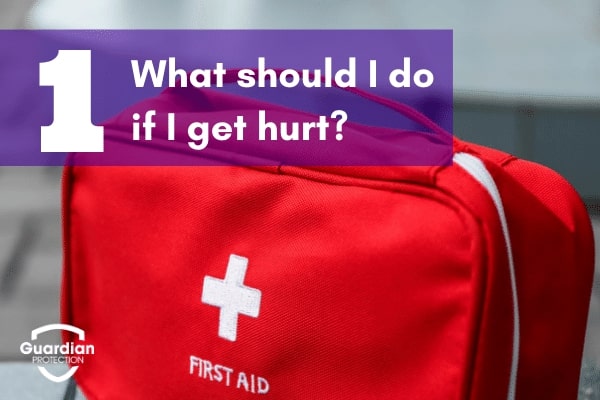
Let’s be real: Kids are gonna be kids.
They will play, rough house, horse around, get silly, and generally do any number of things that could result in cuts, bumps, and bruises. As a precaution, every kid who will be staying home alone should know the basics of first aid.
A great way to introduce kids to first aid is to turn it into a fun activity, and make a DIY kit together! You can explain every item and what it’s for while you build out the kit.
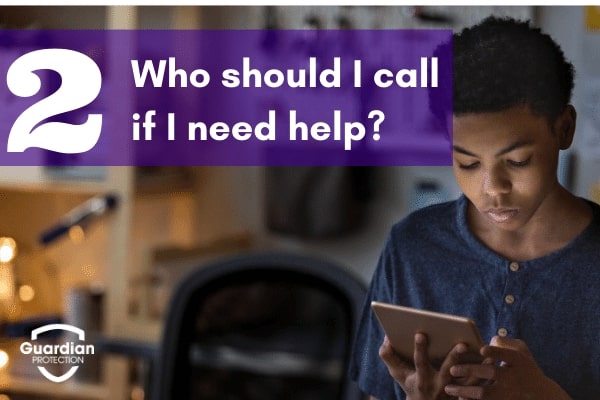
Every family should have a written plan in case of an emergency. The plan should explain how family members will get in touch with each other, along with a contact list of trusted friends and family. If it’s been awhile since you reviewed your plan, take a few minutes to look it over and discuss any changes with your little one.
Now, an important follow-up question: When is it time to dial 9-1-1?
Older kids may already have a good grasp on this practice, but younger ones may need a little more help. A good starting point for teaching kids how to use emergency assistance effectively is to gauge their understanding about what constitutes a 9-1-1-level emergency.
Try posing a few different scenarios to see how much coaching they need:
- I fell and scraped my knee.
- Someone I don’t know is trying to get into the house.
- The dog threw up.
- There is a fire.
Just to be safe, make sure they know they won’t get in trouble if it turns out to be a false alarm.
Role-playing lets kids practice, and also helps them memorize information they will need to give the operator, like their address or your phone number.
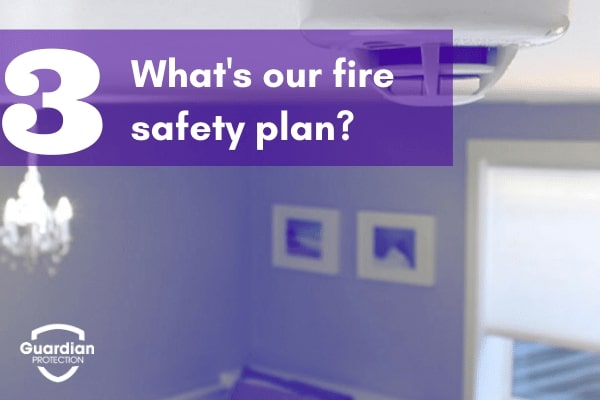
Fire safety rolls up into your family emergency plan.
Before being home alone, all kids should:
- Know the basics of home fire safety
- Be familiar with where your smoke detectors are and how they work
- Memorize the family fire escape plan
If you have kids home alone, we recommend monitored fire and CO detectors.
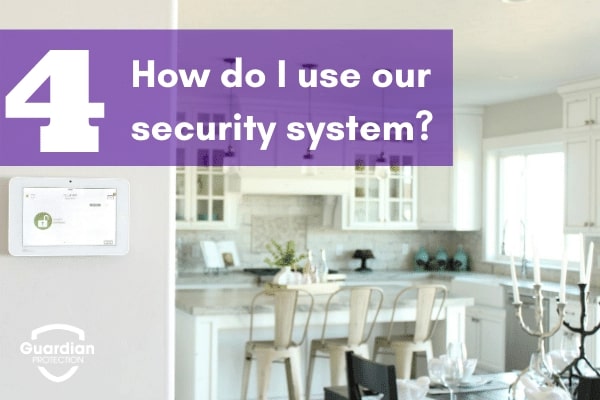
Have a home security system? Walk kids through the basics, like how to arm and disarm the system, what to do if the alarm goes off, and how to avoid false functions.
Make sure they memorize their passcode and warn them not to share it with anyone.
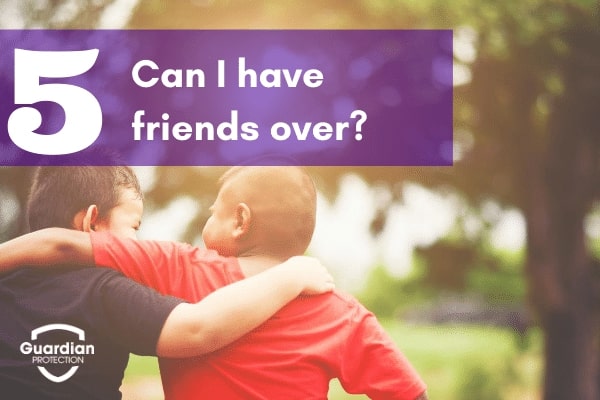
Kids are going to want to have friends over when they’re home alone; you can pretty much count on that. But is it the right fit for your household? Some kids aren’t old enough or mature enough to handle the responsibility, and COVID concerns make this more complicated than ever.
If no one is allowed over when you’re not home, tell them in advance. If it’s limited to only certain people, give them a pre-approved list.
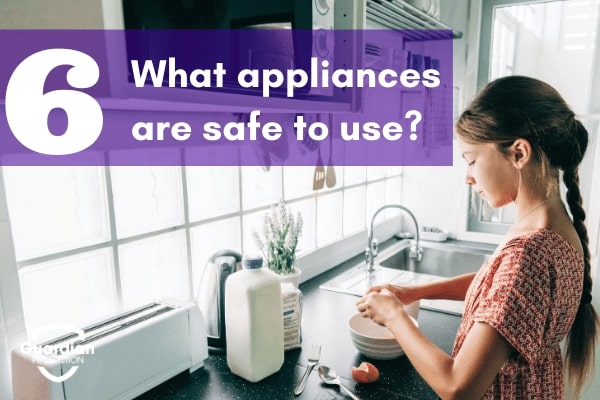
Are they able to cook for themselves, or would you prefer to prep their food ahead of time?
Let them know if certain appliances like the oven are off-limits.
Cooking is the number one cause of home fires. If kids will be cooking for themselves, they should know how to safely put out a small fire.
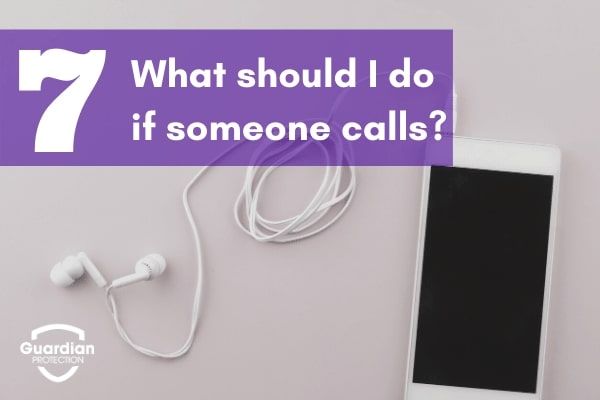
The rules for kids and their phones will vary greatly based on age. Establish an ongoing “rules of the road” conversation for cell phone safety when kids are home alone.
Address topics like photo messaging, social media, app restrictions, and answering calls from strangers.
Requiring non-negotiable, scheduled check-in calls or texts will keep you connected and give you some peace of mind.
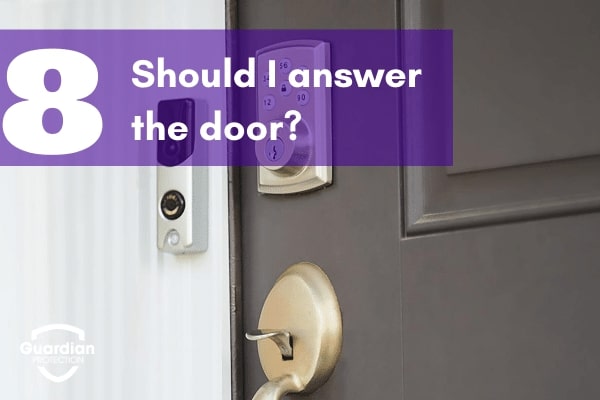
A safe rule of thumb is teaching kids not to answer the door when home alone. Even older kids should avoid opening the door to someone they don’t know.
If you have a video doorbell, kids can feel confident that you will be able to answer the door for them, from anywhere. And visitors will never even know they are home alone.
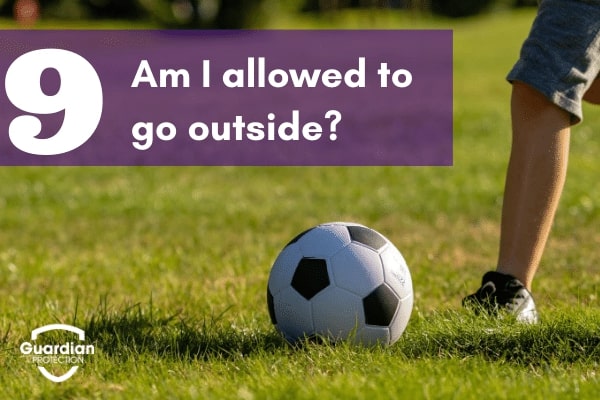
Even kids who are old enough to venture outdoors may need clear boundaries regarding how far they are allowed to wander.
Consider follow-up questions, like:
- Do I have to stay in the yard?
- Is it safe to cross the street?
- Can I go to a friend’s house?
In the event something like a fire forces them outside, give them the name, address, and phone number of a trusted neighbor. If they do go outside, you can keep an eye on them with outdoor cameras.
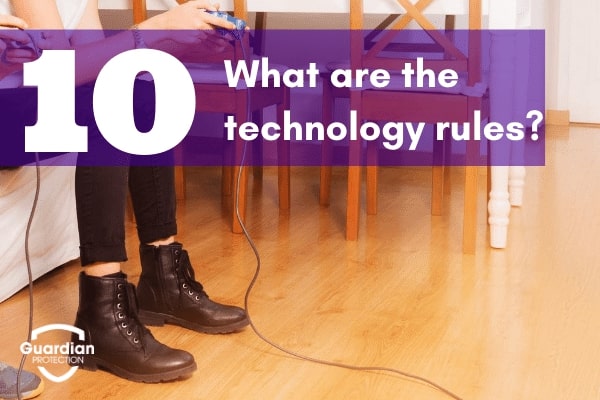
This one is easier said than done, but every parent will have to do it sooner or later:
Establish ground rules for the use of any and all technology, including:
- Smartphones
- Internet
- Video games
- Computer/tablet
Every kid is different, and you might have different restrictions on different devices.
For example:
- Are they allowed to play video games before homework is done?
- Are you comfortable with them using their tablet, but not your laptop?
Lay it all out ahead of time, and write it down for them if it gets super-specific. Planning ahead will also give you time to set up parental controls.
Sum it up, then post it up!
Once you’ve answered these 10 important questions, consider putting all the rules on one list and posting it somewhere easy to find. We recommend keep it in the same place you display emergency contact information and your fire safety evacuation plan.
Remember, whatever your plans are for this school season, your friends at Guardian have your back!
If you need any help making your home a little safer, just give us a call at 1.800.PROTECT (1.800.776.8328).

